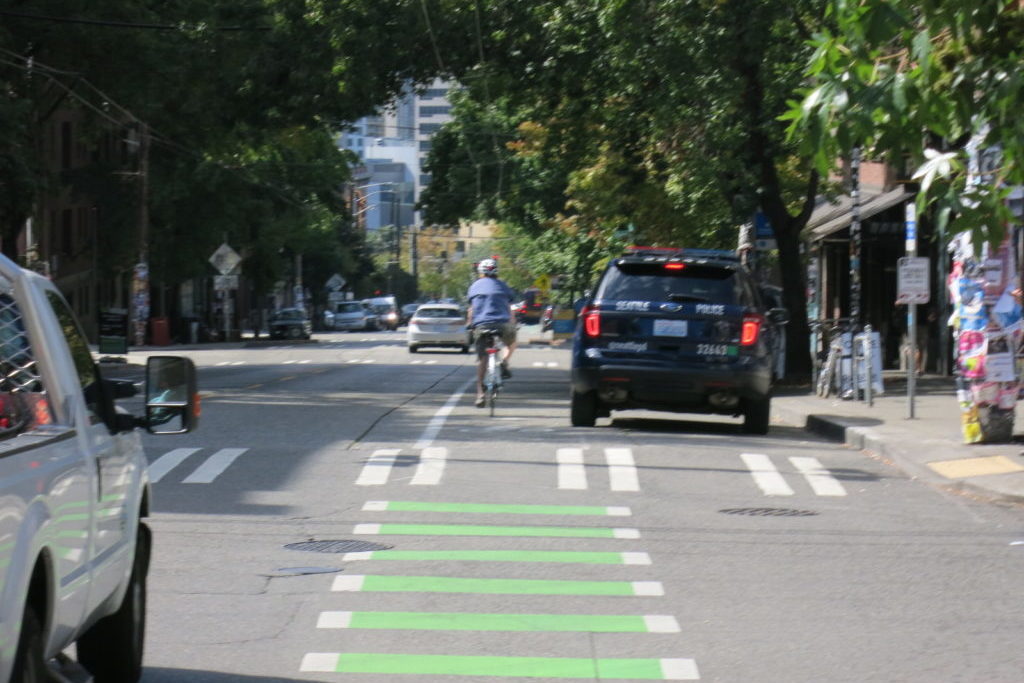In the Emerald City of the Evergreen State, there’s one green initiative that often gets overlooked: stormwater management. Stormwater is the runoff of rainwater and melted snow that directly impacts water quality. In a city that averages 38 inches of rain a year on a particularly hilly, impermeable topography, effective stormwater management becomes a pressing issue.
Rather than lament the perfect storm of factors that create this problem, the Capitol Hill EcoDistrict teamed up with the Seattle 2030 District to effect change. Steven Fry, programs director for the Seattle 2030 District, works on sustainability concerns every day. According to Steven, a stormwater walking tour was a natural first step.
“We figured we would take it to the public, engage with them, see what features they liked, and get a better sense of where they wanted work to be prioritized in the neighborhood,” Fry said. “The intention of the walk was, ‘How can we reimagine space in Capitol Hill that is either underutilized or overlooked to improve community resilience and improve public space with the added goal of stormwater management?’”
A walk in any direction in Capitol Hill will plainly reveal the issue the EcoDistrict and Seattle 2030 are driving at: cement abounds. According to Fry, the number one way to combat stormwater is to keep the water on site – how it would behave in a natural setting. However, in an increasingly developed urban setting, it becomes difficult to identify viable opportunities for green space.
“The vast majority of people still don’t understand what stormwater is and why it’s an issue,” Fry said. “They just think it’s raining, and they’re like ‘Oh, bummer. It’s raining today.’ But what we want them to think about is: All this rain means that our sewer systems are likely overflowing right now, that there’s direct runoff that doesn’t even go into the sewer or just goes straight into the lakes.”
Stormwater is very pollutant heavy. Flowing through urban areas, the water picks up grease, oil, fertilizers, pesticides, bacteria, sediment – all the trappings of dense cities.
“These chemicals morph and evolve as they come into the water streams, and then that’s literally discharged straight into our waterways,” Fry said. “When you have a salmon corridor like we do, they’re swimming straight through all this water that’s very polluted, and it decimates salmon populations, so they can’t spawn, they just die. They lose all motor functions. And it’s just devastating to the salmon population, which is in turn starving the orcas because they don’t have enough food.”
Stormwater management has benefits that extend beyond preserving our salmon and orca populations. The utility of green space becomes multifaceted the further it’s examined.
“I think a very critical piece of this is that it isn’t just about stormwater,” Fry said. “Green space improves air quality; it reduces urban heat islands. It’s shown to improve the mental and physical health of the community. All of these features improve resiliency, especially as climate change impacts increase. Part of the goal of this is to make people realize how valuable these spaces are and what we can do to improve them and add more of them.”
The stormwater walk has been postponed, but Fry and EcoDistrict representatives remain optimistic that it will take place. Stay tuned for more details as the situation evolves.

